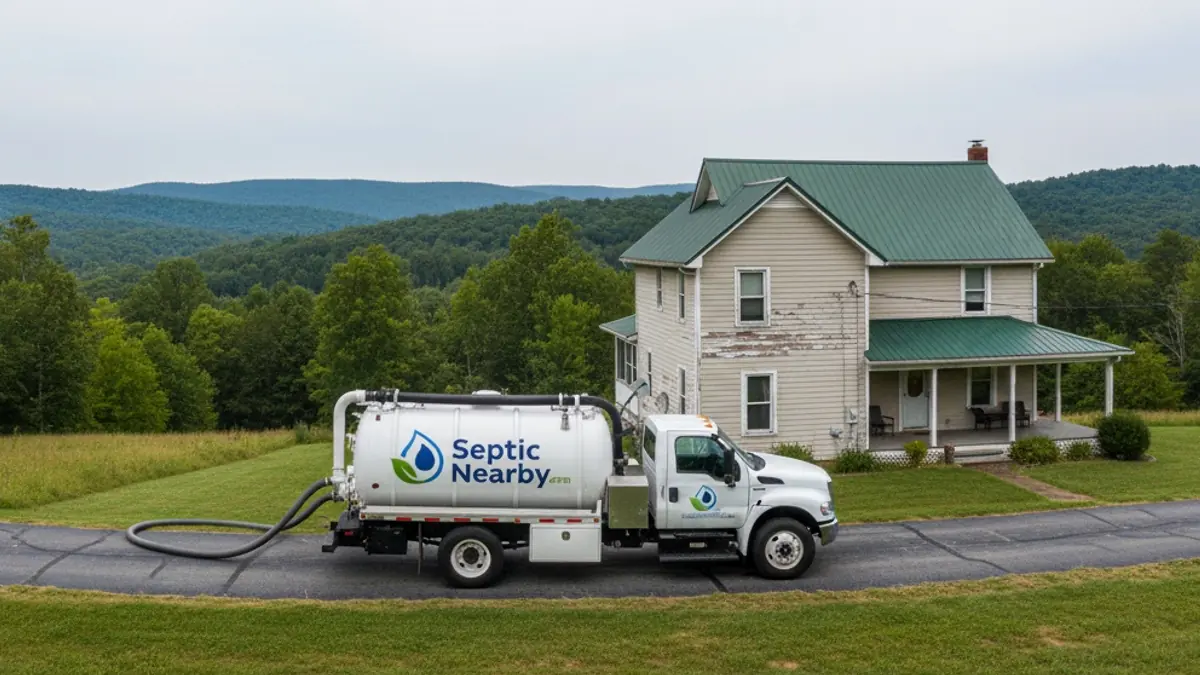Septic Pumping Services in Fannin County, GA
 Photo Illustrative
Photo Illustrative+1-470-9-SEPTIC
Operators available 7 AM - 9 PM
Licensed & Insured • No Obligation • Emergency Service Available
Cities We Serve in Fannin County
Local Septic System Factors in Fannin County
Mastering Onsite Wastewater Management in Fannin County
Welcome to the Fannin County hub for onsite wastewater systems management. For homeowners in our unique corner of North Georgia, a septic system isn't just an utility—it's a critical piece of infrastructure that demands professional oversight and skilled maintenance. From sprawling properties outside Morganton to vacation cabins tucked away near the Toccoa River, the majority of residences rely on these systems. Their performance is directly tied to our environment's health and our property values. This resource is designed from a training and certification perspective, outlining the core competencies, required knowledge, and ongoing skill development necessary for technicians servicing homes across Fannin County.
Our region presents distinct challenges. The humid subtropical climate delivers significant annual rainfall, which, combined with the prevalent clay loam soils, can lead to slow percolation and saturated drainfields. The mountainous topography adds another layer of complexity, demanding specialized equipment and site-specific expertise. Therefore, choosing a septic service professional is not merely about hiring a pumping truck; it's about engaging a technician with a proven track record of competency in our specific geological and environmental conditions.
Fannin County Onsite Wastewater Technician Competency Framework
A truly qualified septic technician operates within a framework of verifiable skills and official credentials. Here’s how homeowners can assess the proficiency of a service provider.
**Required Certifications & State Standards**
In Georgia, any individual who installs, repairs, or pumps septic systems must be certified by the State. The Georgia Department of Public Health (DPH) issues these certifications, and the Fannin Board of Health ensures compliance at the local level. There are distinct certifications for Installers and Pumper-Transporters. Homeowners should always verify that a technician holds a current, valid certification for the specific work being performed. This is the baseline credential, confirming that the professional has passed a state-administered competency assessment covering public health principles, system mechanics, and environmental safety protocols. A technician's certification renewal is contingent upon staying current with regulations and best practices.
**Core Training Programs & Apprenticeship Pathways**
Beyond the state test, robust training is what separates an adequate technician from an expert. A comprehensive training matrix for a Fannin County professional includes hands-on modules covering:
- Site Evaluation: Accurately interpreting soil surveys and conducting percolation tests in the dense, rocky soils found near Epworth and Mc Caysville.
- System Diagnostics: Identifying signs of hydraulic overload, biomat clogging, or structural failure in both conventional and advanced treatment systems.
- Equipment Operation: Safely maneuvering heavy equipment on narrow, steep, or unpaved mountain roads to access properties without causing site damage.
- Regulatory Navigation: Understanding the Fannin Board of Health's specific permitting process for repairs and replacements.
Many of the most skilled local technicians began their careers through an apprenticeship, learning directly from seasoned professionals who have decades of experience with the area's unique challenges. This hands-on training is invaluable and often surpasses what can be learned in a classroom alone.
**Skill Assessments & Competency Verification**
Homeowners can perform their own informal competency assessment when vetting a provider. A proficient technician should be able to clearly explain the function of your system's components (e.g., inlet/outlet baffles, effluent filter) and articulate a clear, logical diagnostic process. They should ask questions about household size, water usage patterns, and the age of the system. A true professional can diagnose issues specific to our region, such as drainfield struggles due to the interaction between heavy spring rains and our clay-heavy soils. They don't just pump and leave; they assess and advise.
**Continuing Education & Certification Renewal**
Onsite wastewater technology is not static. Innovations in advanced treatment units, drainfield rejuvenation techniques, and environmental regulations require ongoing education. Professionals maintain their edge by earning CEUs (Continuing Education Units) through state-approved workshops and seminars. This commitment to certification renewal and lifelong learning ensures they can service everything from a standard gravity-fed system in a Blue Ridge subdivision to a complex aerobic treatment unit on a sensitive waterfront property. When a technician discusses modern solutions, it's a sign they are invested in their trade and equipped to provide the best possible service.
Frequently Asked Questions in Fannin County
Key septic regulations in Fannin
The primary authority is the Fannin Board of Health, which enforces Georgia DPH regulations. A permit is mandatory for new installations, tank replacements, and drainfield repairs. A permit is not needed for routine pumping and maintenance.
Average pumping cost across Fannin
Costs typically range from $325 to $650. The price varies based on tank size, the travel distance to your property (e.g., a remote site near Epworth vs. an in-town Blue Ridge location), and accessibility challenges like steep driveways or the need for extra hose length.
How often to pump septic systems in the county?
The general recommendation is every 3 to 5 years. However, in Fannin County, factors like high occupancy (common in vacation rentals), heavy water use, or systems in slow-draining clay loam soil may require a more frequent 2 to 3-year schedule to prevent solids from reaching the drainfield.
Weather and scheduling in Fannin
The rainy season, typically spring and early summer, can saturate drainfields and make service access difficult. It's best to schedule routine pumping or inspections during drier months like late summer or fall. For major repairs or installations, a period of dry weather is essential for proper soil work.